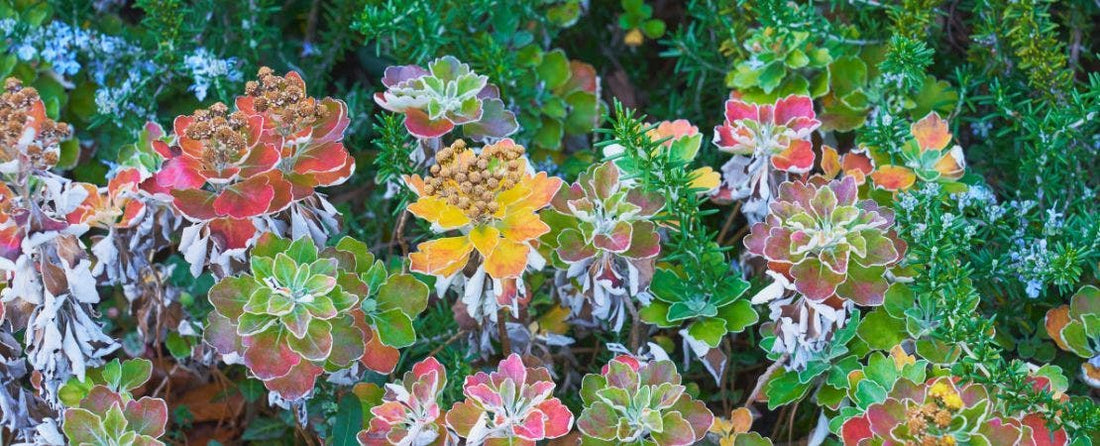Winter Care Tips for Your Garden

Prepare Your Plants for Winter With These Tips
Preparing your garden for winter is a crucial step to ensure the survival and health of your plants through the colder months, and it can significantly impact their growth and bloom in the spring. Understanding how to properly winterize your garden is essential. Here's are expert tips on winter garden preparation, including specific steps to take at different stages and how needs may differ between zones. Remember, gardening is not just about the current season but preparing for the next.
General Winter Preparation Tips
- Mulching: After the first hard winter freeze, apply a fresh 3- to 4-inch layer of mulch around evergreen trees, shrubs, perennials, and roses. This helps to insulate the soil, protecting roots from freeze-thaw cycles and retaining moisture. The type of mulch can vary based on availability and specific plant needs, but organic options like shredded bark or leaf mold are beneficial for adding nutrients to the soil as they decompose.
- Snow and Ice Management: If snow and ice accumulate on trees and shrubs, gently brush them off to avoid damage. Avoid shaking the branches, as this can cause breakage. For stubborn ice, it's best to allow it to melt naturally to prevent harm to the plants.
- Pruning and Maintenance: Deciduous trees and shrubs may require some deadwood removal or interior pruning to enhance air circulation and reduce the risk of fungal diseases. Always aim to maintain the natural shape of the plant, and avoid removing more than a third of its growth. For evergreens showing signs of stress or browning, this indicates potential issues that may need addressing, such as watering needs or disease management.
- Winter Weather Fluctuations: Unseasonably warm days can trick plants into thinking spring has arrived early, leading to premature bud development. Ventilating protective covers like rose cones and cold frames can prevent heat buildup but remember to close them up as temperatures drop again. Monitoring your garden throughout the winter allows you to anticipate and mitigate damage from these fluctuations.
Zone-Specific Considerations
Zone Variability: Gardening needs can significantly differ across USDA Hardiness Zones. Colder zones (1-6) may require more extensive preparations, such as deeper mulching and additional protections against freezing temperatures. Warmer zones (7-11) might focus more on managing water and ensuring plants don't become too active during brief warm spells in the winter.
Protecting Evergreens: In zones with harsh winters, evergreens may need extra attention, including anti-desiccant sprays to prevent moisture loss. Tying the branches of multi-stemmed evergreens like junipers and arborvitae can prevent breakage from heavy snow and ice.
Perennial Care: While tough perennials like mondo grass and liriope can be cut back with garden equipment, more tender perennials in colder zones might benefit from additional mulch or even temporary coverings to protect them until the threat of the harshest weather has passed.
Advanced Tips for Winter Garden Care
Watering Before Freeze: Ensure your plants are well-hydrated before the ground freezes. This is particularly important in areas where winter precipitation is low. Well-hydrated plants are more resilient to the cold.
Garden Clean-Up: Remove any diseased or pest-infested plant material to reduce the chances of problems in the spring. However, consider leaving some spent plant stems and leaves to provide habitat for beneficial insects over the winter.
Tool Maintenance: Winter is an excellent time to clean, sharpen, and oil your gardening tools so they're ready for spring.
Planning Ahead: Use the quiet winter months to plan next year's garden. Consider crop rotation, new plant varieties, and any design changes.
By following these detailed tips and adapting them to your specific zone and garden conditions, you'll be taking significant steps to protect your garden through the winter. Not only does this preparation help safeguard your plants, but it also sets the stage for a vibrant and thriving garden once spring arrives. Remember, the effort you put into winterizing your garden will pay off with robust growth and beautiful blooms in the months to come.


